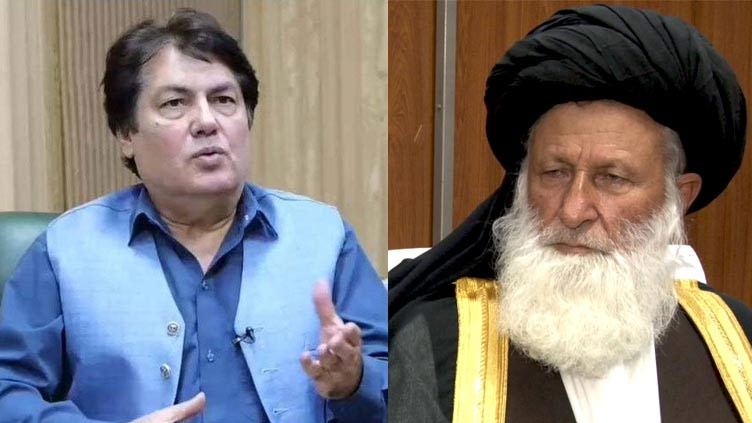- COVID-19 jabs would be used to vaccinate high-risk groups.
- New formula effective against currently circulating variants.
- “We believe Saudi authorities will require vaccination,” says official.
ISLAMABAD: Pakistan is likely to receive 500,000 doses of Pfizer’s new COVID-19 vaccine (2023-24 formula) in January 2024 amid a global surge in cases as the new JN.1 variant spreads around the world, The News reported on Monday.
The COVID-19 jabs would be used to vaccinate high-risk groups, including pilgrims before embarking on the Hajj pilgrimage, officials said on Sunday.
But before vaccinating people with the newly-developed vaccine in Pakistan, the authorities need to get a fresh Emergency Use Authorisation (EUA) from the Drug Regulatory Authority of Pakistan (Drap) as the newly-developed vaccine by Pfizer has not been approved or licensed by the United States’ Food and Drug Administration (FDA), but has only been authorised for emergency use by them, they added.
“We are going to get 200,000 doses of Pfizer’s new COVID-19 vaccine (2023-24 formula) from the US in the next few days. This new formula is effective against the currently circulating variants including Omicron and its sub-variants. In addition, we would get 300,000 more doses of Pfizer’s COVID-19 vaccine from COVAX, an international initiative to provide Covid vaccines to people around the world,” an official of the National Institute of Health (NIH), Islamabad told The News.
The number of new COVID-19 cases increased by 52% during the 28-day period from November 20 to December 17, 2023 as compared to the previous 28-day period, with over 850,000 new cases reported during that time, the World Health Organisation (WHO) reported last week after it declared JN.1 sub-variant of the Omicron variant of COVID-19 as Variant of Interest (VOI).
However, the officials in the NIH Islamabad and provincial health facilities in Lahore and Karachi said they had not yet detected JN.1 sub-variant in Pakistan as COVID-19 positivity was quite low and less than 1% but added that in order to prevent pilgrims from contracting the new COVID-19 variants, they needed the new vaccine.
“We believe that Saudi authorities will require vaccination against COVID-19 with new mRNA vaccine developed by Pfizer or other companies authorised by the US Food and Drug Administration (FDA) before allowing pilgrims to enter their territory for Haj,” the NIH official added.
He maintained that all the previous vaccines, including Pfizer or Chinese Sinopharm and Sinovac, will either be consumed or expired by November 2023 and added that at the moment, Pakistan has no stock of any COVID-19 vaccine.
On the other hand, Pakistani authorities will have to acquire ‘Emergency Use Authorisation’ for Pfizer’s newly-developed Covid-19 vaccine from the Drap as Pfizer-BioNTech Covid-19 Vaccine (2023-2024 Formula) has not been approved or licensed by the FDA, another health official said.
According to Pfizer, its Pfizer-BioNTech COVID-19 Vaccine (2023-2024 Formula) has been authorised for emergency use by the FDA under an Emergency Use Authorisation to prevent Coronavirus Disease 2019 (COVID-19) for use in individuals aged between six months to 11 years of age.
“Drap accepts FDA’s EUA as such, so no problem in term of its use in Pakistan. Drap will just require a formal request for it along with the FDA certification,” the official said, adding that either the NIH or Federal Directorate of Immunisation (FDI) or in the case of Pfizer, their local representative or authorised supplier could submit a formal request for the Emergency Use Authorisation for the vaccine.
Regarding its use for children aged between six months to 11 years, the official claimed that a vaccine suitable for this age would work for adults as well. Meanwhile, ages below 12 years are considered sensitive as their immune system is still evolving, he added.


 Business3 days ago
Business3 days ago
 Latest News3 days ago
Latest News3 days ago
 Business3 days ago
Business3 days ago
 Business3 days ago
Business3 days ago
 Uncategorized3 days ago
Uncategorized3 days ago
 Latest News2 days ago
Latest News2 days ago
 Latest News2 days ago
Latest News2 days ago
 Latest News3 days ago
Latest News3 days ago












